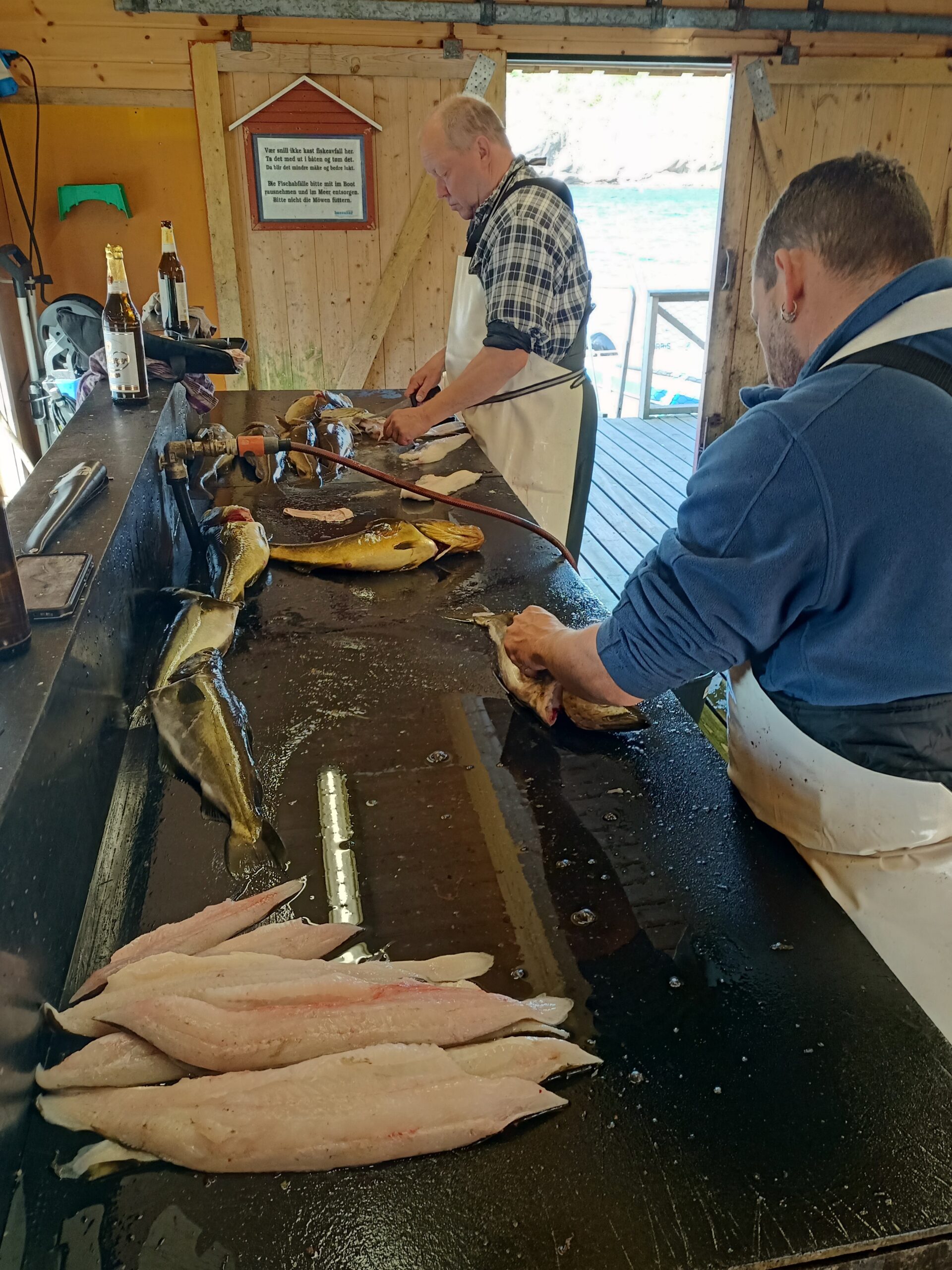
Into bed when it rains – up again when it rains, and onwards… Our neighbour, the kayak adventurer, is also already up, eats another hearty meal, squeezes into his dry suit, and pulls out into the sound with elegant, powerful arm thrusts… insane, impressive. What a guy!
We are much more comfortable: start the engines, turn the wheel, navigate by autopilot – and after a few hours we are already in Bessaker, about 150 km further.
Bessaker is another small town with good infrastructure, a charming harbour and a shop with an integrated post office, coffee shop and library. One for everything, and everyone. Of course, the owner is also harbour master, petrol station attendant and kind-hearted tourist guide. And his wife allows us to take a private shower and do our laundry at her place! Visiting friends, one would have to say.
On our tours we notice amateur fishermen who have returned with a rich catch and are now gutting and carefully filleting their catch, drinking a beer with it and proudly displaying their work. And are happy to chat with us: Farmed fish? Out of the question – whenever possible, the friends go out to sea and cast their rods, helping themselves along the coast. The waters are rich in fish – as long as you fish with a rod. Which means nothing else than: find every single fish, lure it, let it bite, hoist it up, keep it cool (which is no problem at the moment), and now gut it….
Of course, the return is disproportionate to the effort. But only wild-caught fish is real fish, is rich protein and valuable fat, and the best energy for a strong attitude to life. That is their conviction – as it should be.
Next to the harbour begins a carefully laid-out walking path, mostly on footbridges made of wooden steps, so as not to further burden the sensitive ground with footsteps. Visitors from near and far feel invited by this footbridge to climb up a long hill and enjoy the view over the fjords and the sund. From far away we see the Hurtigruten liner approaching Bessaker. But this coastal town is no longer served, as the harbour master/shopkeeper/tourist guide explained to us. In his youth, these ships still stopped here and brought the mail and other important goods, but since a bridge has been built and the place has been developed with a road, this ship only passes by – not without sending a greeting every time with a blast from the horn. And so it is now, traditions!
Soon this robust former postal ship (best compared to our post buses), which has mutated into a popular tourist ship, disappears. We stay up here for a while and let our eyes wander with the wind into the overwhelming horizon. – Lois, as a passionate ornithologist, watches ‘her’ birds; I try to imagine what life must have been like here before oil was found and salmon were farmed. And I am grateful that our forbearers never gave up persevering and braving the harsh climate. – They would be amazed at how much better life has become in the meantime. And that’s why they can’t understand that young people today see themselves as the ‘last generation’, abandon themselves in a doomsday mood, decry all the achievements of modernity and want to ‘overcome’ our prosperity… How arrogant one must be, how ignorant, how stupid!